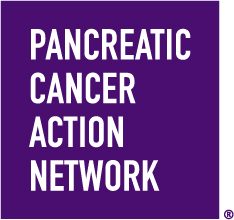Module 1 of this 2-part micro learning discusses the most reported symptoms and different risk factors of which physicians should be aware, as well as the main diagnostic tools available, and provides an overview of treatment options available to date for different patient groups.
Clinical takeaways
-
Pancreatic ductal adenocarcinoma (PDAC) is usually diagnosed at an advanced, incurable stage due to non-specific symptoms and has an extremely poor prognosis
-
Recognition of symptoms and known risk factors is important for an early diagnosis
-
Systemic chemotherapy is the standard treatment for mPDAC, but molecularly targeted treatments and immunotherapies may have a role for specific patients
-
Choice of treatment depends on several factors, including patients' performance status and co-morbidities
Micro learning programmes consist of bite-sized resources that each take less than 5 minutes to watch or read. If you have a little more time, take the short assessment and earn a CME credit in just 30 minutes.
This programme is also featured on the ReachMD website here: Metastatic Pancreatic Ductal Adenocarcinoma (PDAC): From Diagnosis to Treatment









 Downloadable
Downloadable  20 MIN
20 MIN
 Feb 2026
Feb 2026 







